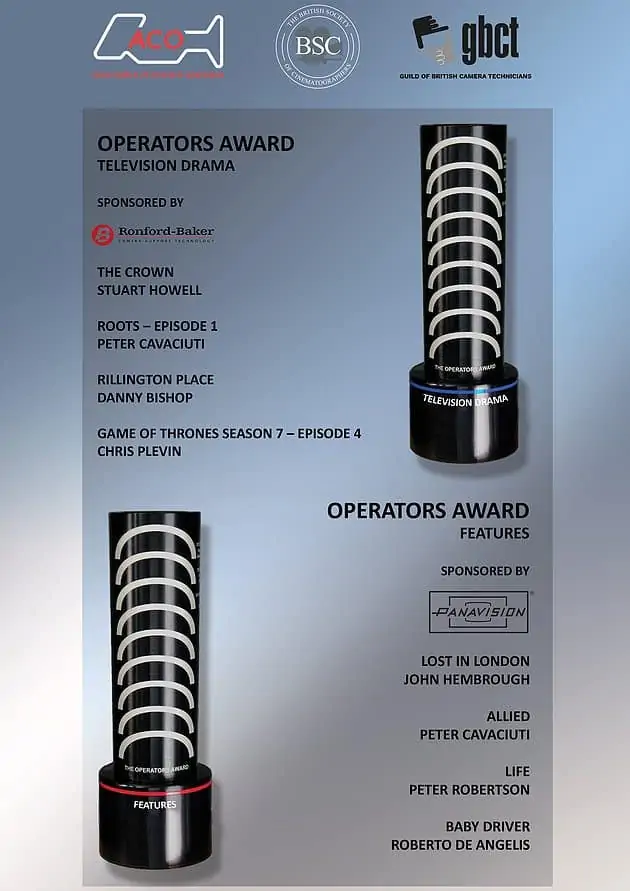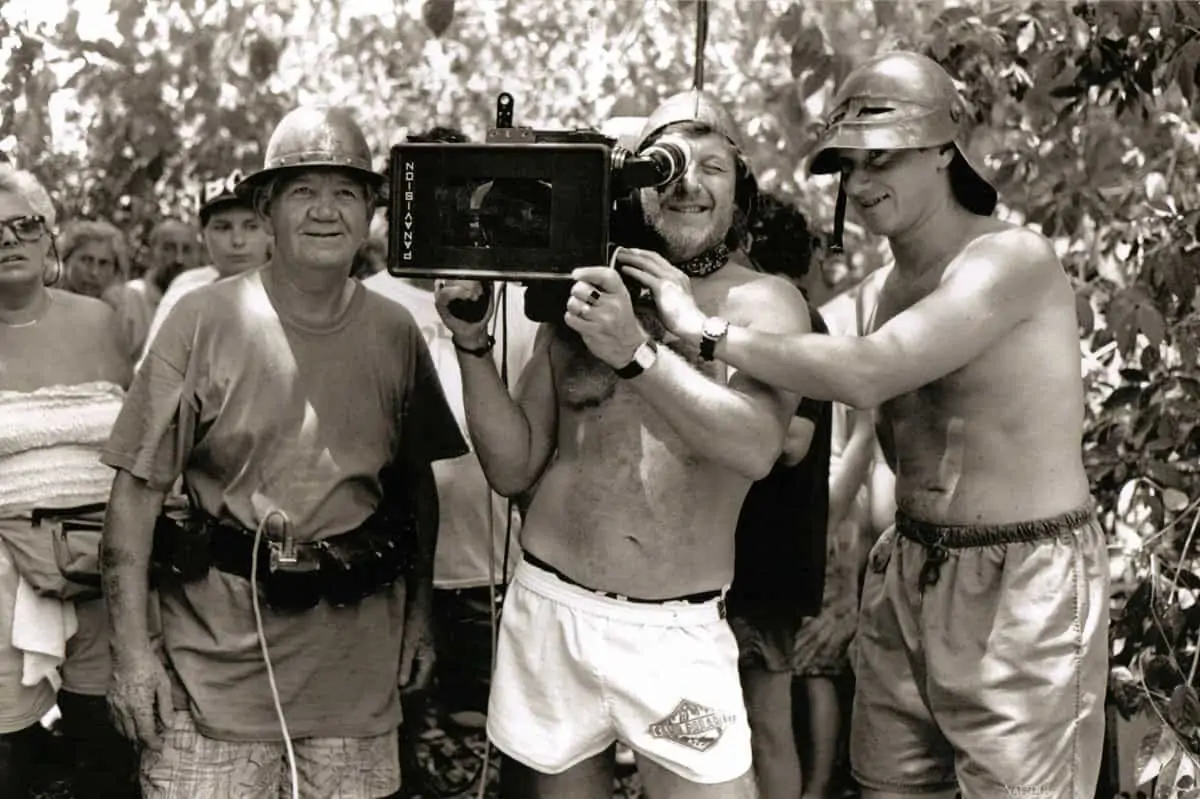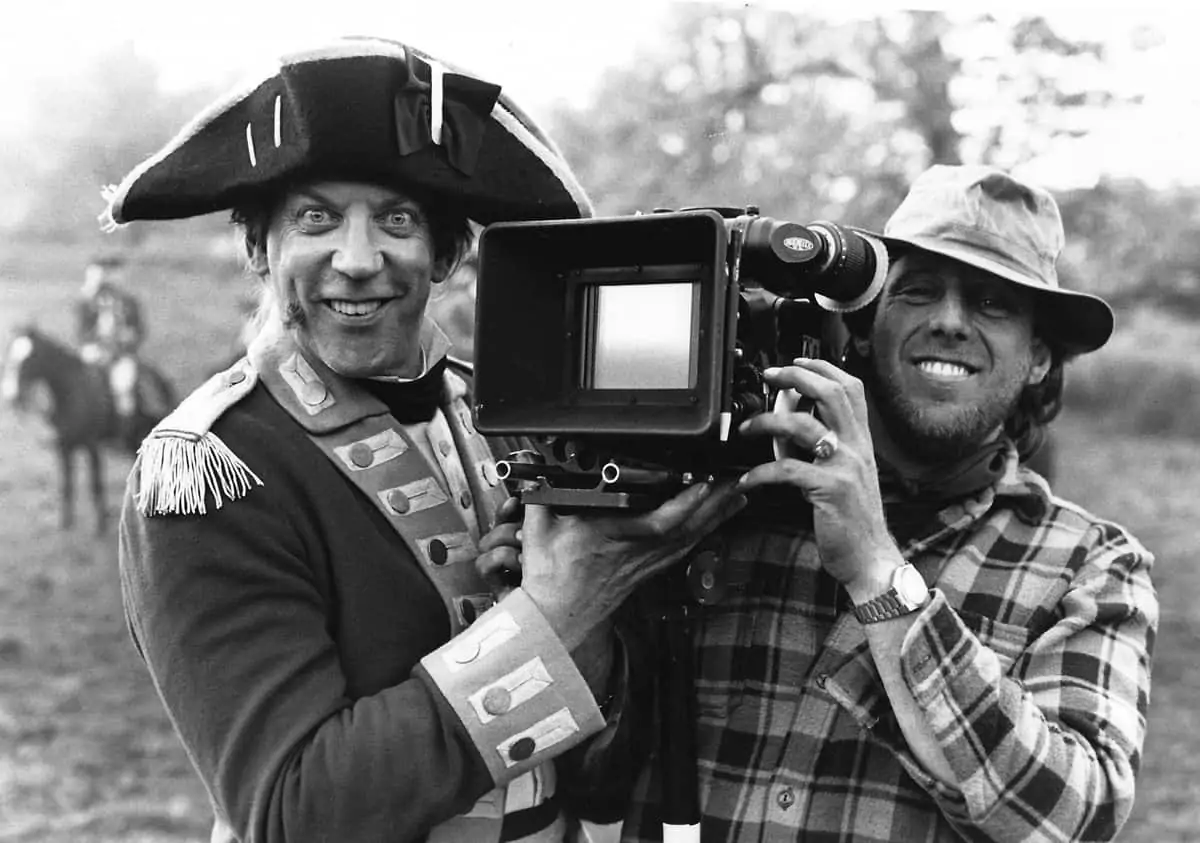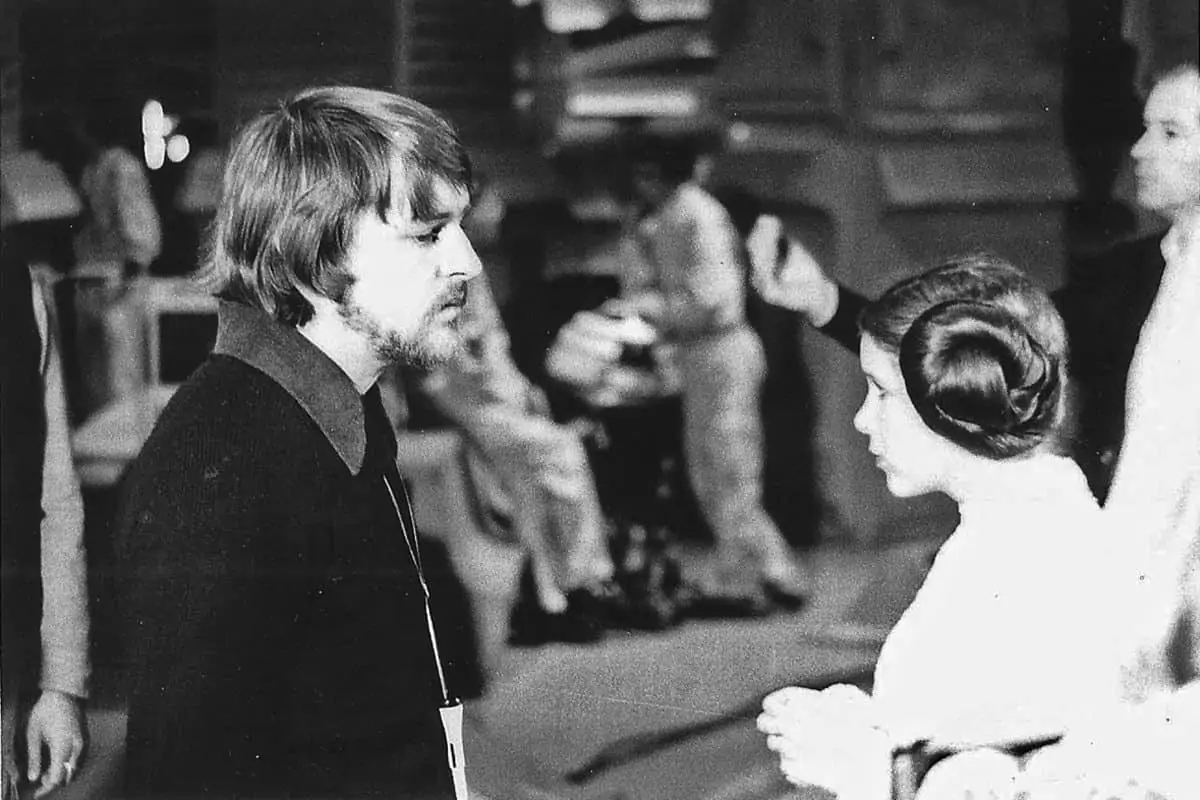Young Blood
Clapperboard / Trevor Coop ACO, GBCT, Associate BSC
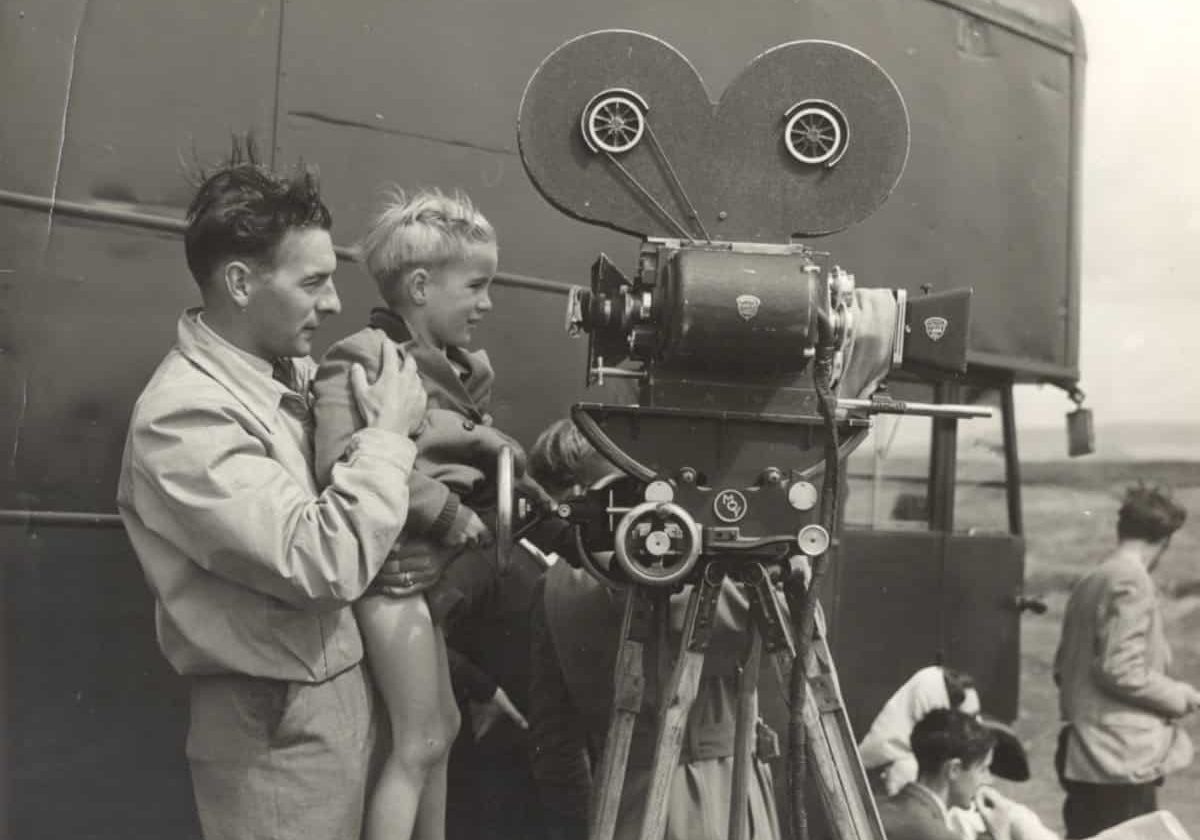
Young Blood
Clapperboard / Trevor Coop ACO, GBCT, Associate BSC
BY: David A. Ellis
Camera operator Trevor Coop is the son of the late cinematographer Denys Coop. He was born in Pinner and was interested in cinema from an early age, visiting his father on set many times. Coop says he would often visit his local cinema, engrossed, watching Flash Gordon get out of trouble each week. When he was around ten he was taken to see the Todd AO feature South Pacific and made up his mind to work in film.
After leaving school he went to Harrow Art School to study photography but decided still photography wasn’t for him. At seventeen he went to work at a laboratory cleaning negatives. While there he obtained ACT membership. He moved on and worked at Samuelson’s and learned about cameras. “I went to work with focus puller Ronnie Bridger as a loader,” said Coop. “Later I loaded for Bob Jordan on several films including Quatermass And The Pit.”
Coop went on to work with the great cinematographer Freddie Young BSC and operated on Young’s only film as director, Arthur’s Hallowed Ground. Coop said: “The first film I worked with Freddie on was Battle Of Britain. Others include Ryan’s Daughter and Nicholas and Alexandra. I did twenty-three movies with Freddie working in all capacities; loader, focus puller, operator and cinematographer on second units.”
Coop’s first movie as a focus puller was Luther (1974). It was directed by Guy Greene and photographed by Freddie Young. His first outing as an operator was Stainless Steel And The Star Spies (1981), again shot by Young.
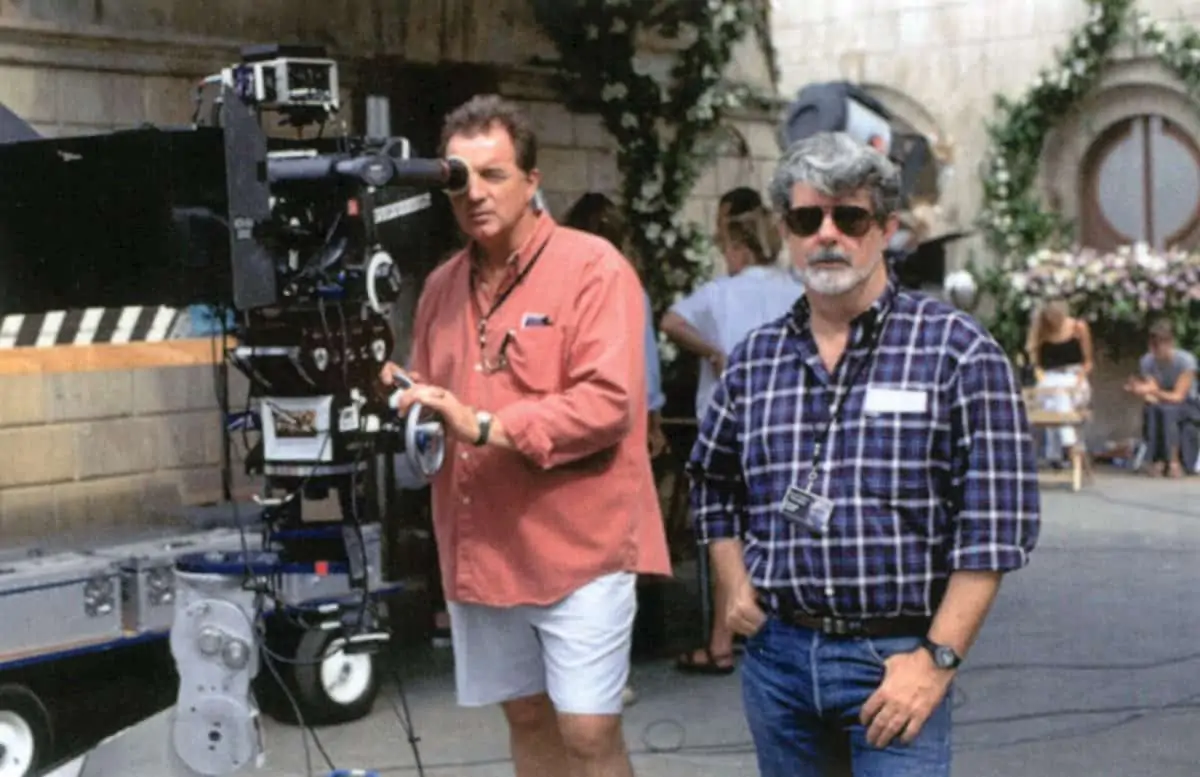
Asked what skills are required to be an operator he said, “Apart from the technical skills, diplomacy is the biggest asset. A lot of the time is spent being a catalyst or buffer in some cases between the director and the cinematographer.”
He added that in his case he was fortunate enough to work with more than a dozen Oscar-winning and Oscar-nominated DPs and that “you pick up stuff you don’t realise you’re learning.”
Notable cinematographer Seamus McGarvey BSC ASC said: “I had the great pleasure of working with Trevor on a number of films and my cinematography has always been enhanced by his creativity. We had a wonderful time shooting WIT for Mike Nichols. The shoot was at first glance quite daunting because of the subject matter. Trevor’s calmness and sensitivity really helped make the shoot a joy.”
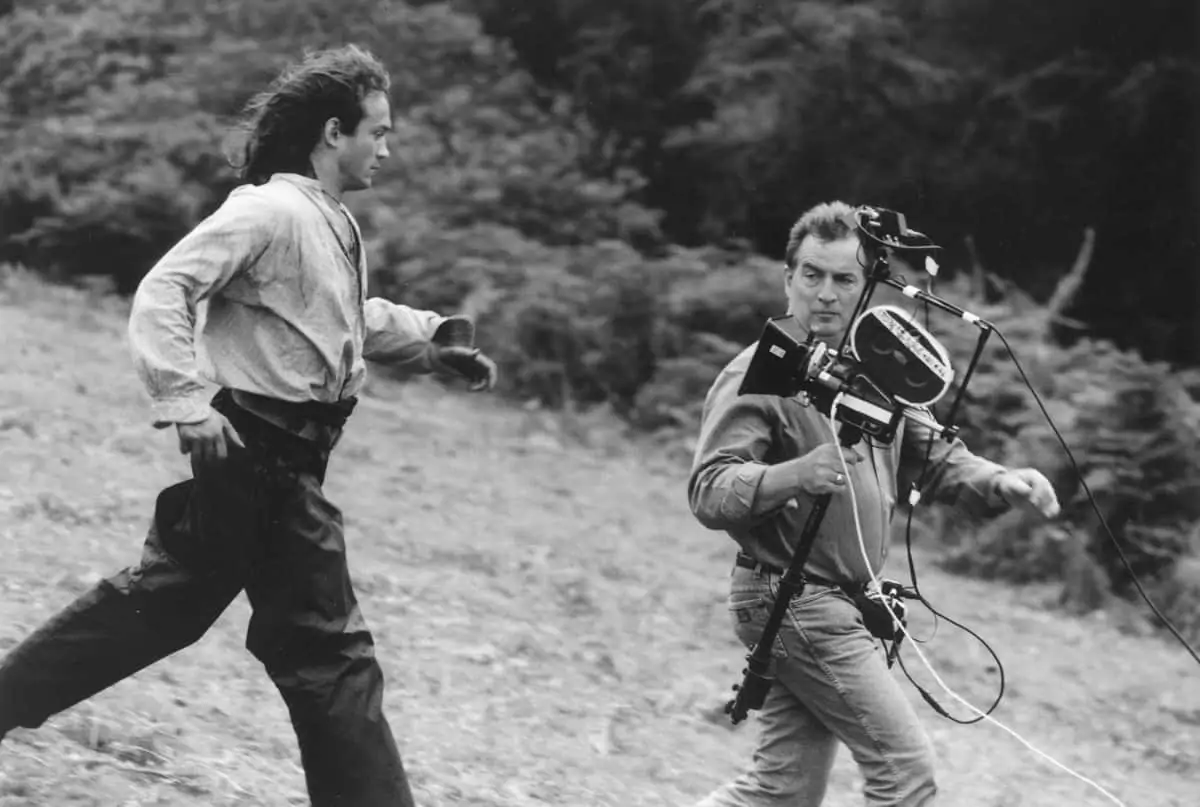
Coop has been second unit DP on a number of features and a great number of commercials but he mainly wanted to remain an operator. “In 1983 I was given the job as the main operator (A camera) on Amadeus. I realised I had the opportunity to work with people that some would call geniuses. I made a conscious decision to remain operating. I thought if I stayed operating, having been fortunate enough to get a few big pictures, I would continue to get the better pictures. If I’d become a DP I would have been given stuff the established DPs wouldn’t want. So I decided to stay as an operator, which I love.”
Coop goes on to say that on some features shot today the DP also does the main operating. As more than one camera is often used these days there is still a place for people who only operate.
Asked about the best advice he was given and by whom he replied: “It was Freddie Young. He was in his seventies and the director was giving him a hard time. I said, ‘Why don’t you give it up?’ Freddie said, ‘Everytime I go to work I learn something new and if I don’t I’m not paying enough attention. I will continue until I’m a hundred, if I live that long.’ I took that on board and adopted the same attitude.”
Would he name some favourite movies he has worked on? “I think Battle Of Britain would have to be one – it was the first film I did with Freddie Young and I hadn’t worked on anything as big. The film had a feeling of reality because the German parts were spoken in German with subtitles rather than accents. I also met my wife who was a production secretary on it. I enjoyed The Tamarind Seed with Blake Edwards, who was a delight. All the pictures I have done with Kenneth Branagh would be top of the list too. I have never met anyone that has such huge enthusiasm for filmmaking as director or actor. Other favourites include The Adventures Of Young Indiana Jones, a series, which we made in twenty-two countries and Closer, with director Mike Nichols and DP Stephen Goldblatt BSC ASC. I won the BSC operators’ award in 2004 for that.”
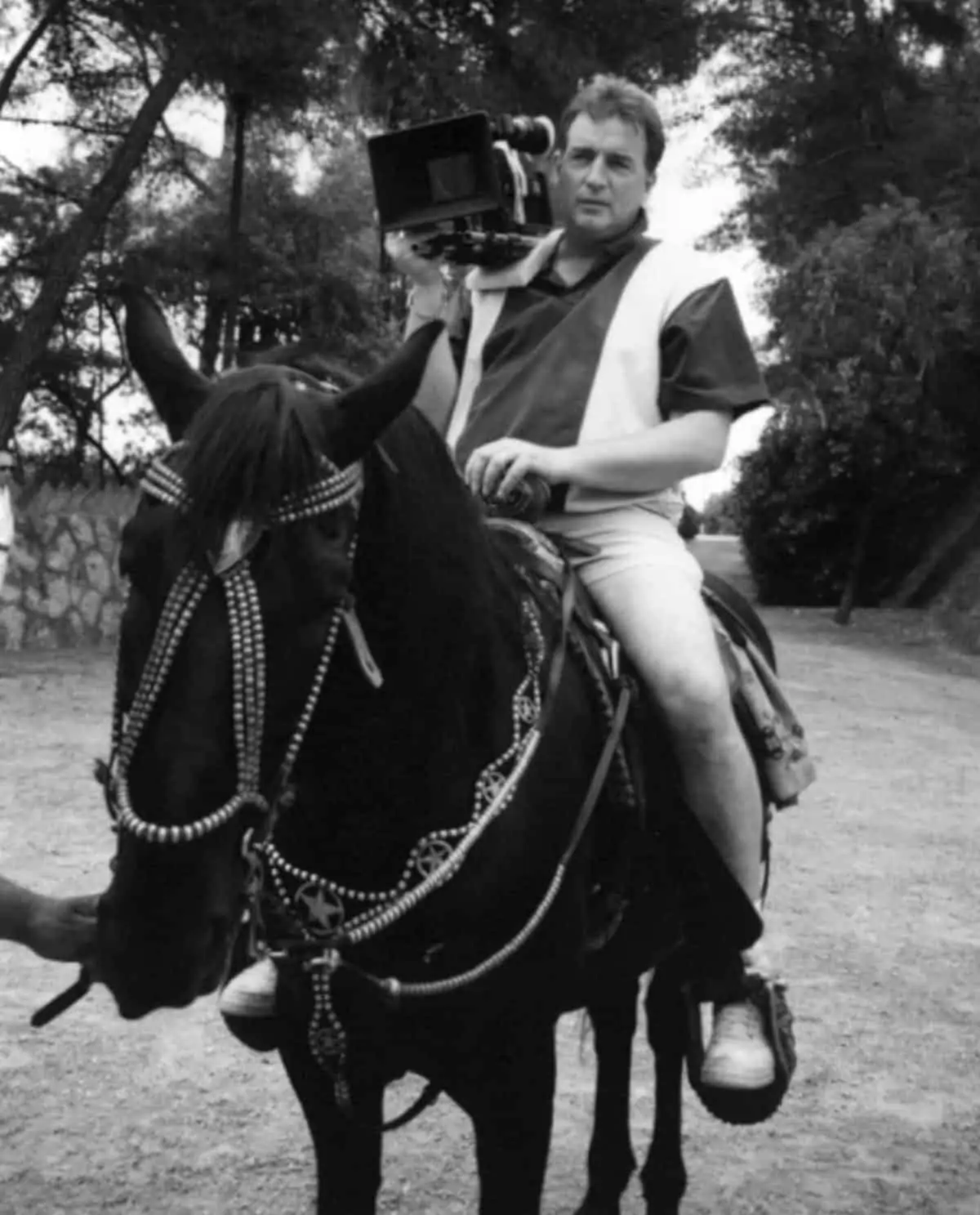
"Everytime I go to work I learn something new and if I don’t I’m not paying enough attention."
- Trevor Coop ACO, GBCT, Associate BSC
Speaking about Coop, Goldblatt commented, “I have worked with Trevor off and on for well over twenty years. He embodies every virtue of the British film industry, Ability, strength, endurance and a wicked sense of humour. He can also drink me under the table.”
Does he have a favourite piece of kit? “The crane is my favourite but I like them all. There is so much technology that enables you to do things you couldn’t do before. The equipment is getting smaller and lighter. You can put cameras in places that would have been impossible five years ago.”
Asked about challenges he said: “All films have their challenges. Some producers want a £2 million pound film to look like a £10 million pound one.”
Most recently Coop worked on the short film Epitaph, produced and directed by his daughter Amy with the support of Directors UK and ARRI GB as part of their Challenge Alexa competition. The films were the first to shoot on the Alexa Plus 4:3 with anamorphic lenses.
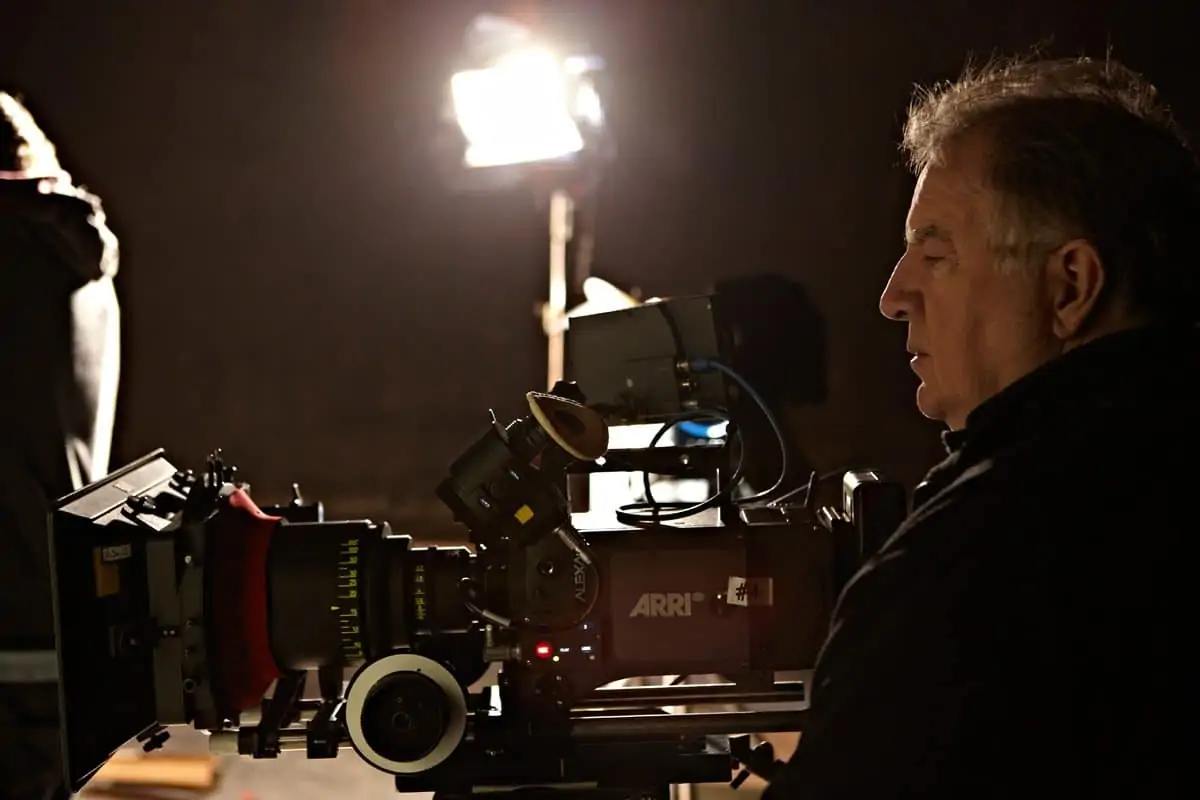
“It was fantastic working with family members,” Coop said. “Amy asked me to shoot it and my eldest son Jason was the focus puller. Amy was one of six selected to make a film out of hundreds of applicants. They were given digital equipment to shoot their story. I am sure it will do well on the festival circuit.”
What does he think of digital? “I have worked with digital for around five years. There are magic things about digital, it’s just a crying shame that it is now becoming our only tool as opposed to a choice.”
Coop has done a lot of television, shooting on 16mm. Retirement is far from his mind, he intends to carry on until the phone stops ringing.
